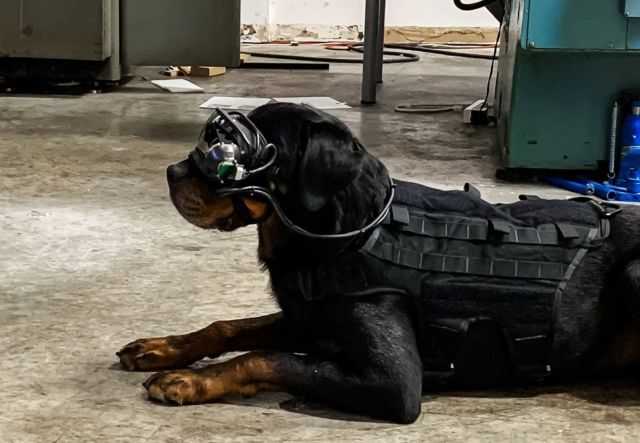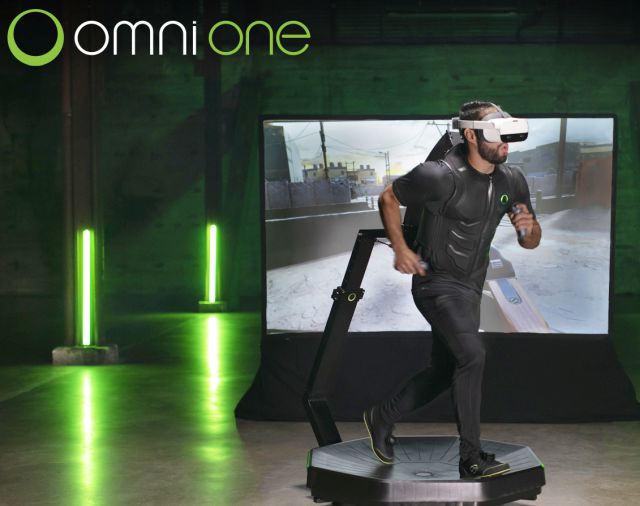In one of the more “welcome to 2020” stories that’s come across our desk, there’s word about a US Army Research Laboratory project that’s putting augmented reality headsets on dogs. They won’t be playing Minecraft Earth, instead, the dog will receive visual and audio cues in the headset, enabling the handler to be out of sight or at a distance while the canine works.
The current prototype is wired, but over the next couple of years, the plan is to develop a working wireless setup. DoD funding may help make it more usable, but it may be more difficult to get comfortable ethically with this application of AR tech, and whatever other uses come up next.
— Richard Lawler
Your lingering hardware questions will be answered.
Whether you’re eagerly awaiting a next-gen upgrade or you just like looking inside electronic devices, set aside a few minutes to watch this thorough teardown of the PlayStation 5. Instead of leaving things to the likes of iFixit, Sony hardware VP Yasuhiro Ootori pulls it apart piece by piece and gives some insight on why the machine is designed the way it is.
While Microsoft showed off what’s inside the Xbox Series X soon after unveiling the hardware, this is our first real peek inside the PS5, and it doesn’t disappoint. The cooling system uses a fan that pulls in air on both sides and across a massive heatsink, and we got our first look at the SSD bay that’s ready to handle extra storage.
Continue reading.
Mark your calendars appropriately.
In a Medium post, Intel has confirmed that its 11th generation Rocket Lake CPUs will be arriving in the first quarter of 2021. They’ll also finally match AMD’s third-generation Ryzen chips with PCIe 4.0 support. Clearly, Intel is trying to splash a bit of cold water on AMD’s Ryzen 5000 CPUs, which are launching today and will serve as Rocket Lake’s main competitor.
Continue reading.
COVID-19 has slowed Virtuix’s business selling these setups to arcades.
It’s been a few years since we first tried out the Virtuix VR “treadmill,” but now the company is developing a home version. The $1,995 device won’t actually move under its users’ feet, instead they wear special shoes that slide across its base and track the wearer’s movement.
Virtuix says it’s applying the “Peloton model to gaming.” Omni One will have a monthly subscription fee, which you’ll need to pay to play games online, access rankings and be eligible for contests and prizes. Games will be available to buy separately, including some popular third-party VR titles that won’t require you to move around on the treadmill.
Continue reading.
Their controversial breakthrough has ‘taken the life sciences into a new epoch.’
Emmanuelle Charpentier and Jennifer Doudna have received the 2020 Nobel Prize in Chemistry for their roles in discovering the CRISPR/Cas9 “genetic scissors” used to cut DNA. Charpentier found the key tracrRNA molecule that bacteria use to cut and disable viruses, and collaborated with RNA expert Doudna to eventually ‘reprogram’ the scissors to cut any DNA molecule at a specific point, making the gene editing method viable.
Continue reading.
October 08, 2020 at 06:50PM
https://ift.tt/30KJRox
The Morning After: Sony gives us a peek inside the PlayStation 5 - Engadget
https://ift.tt/2ZeUDD8
Sony





No comments:
Post a Comment